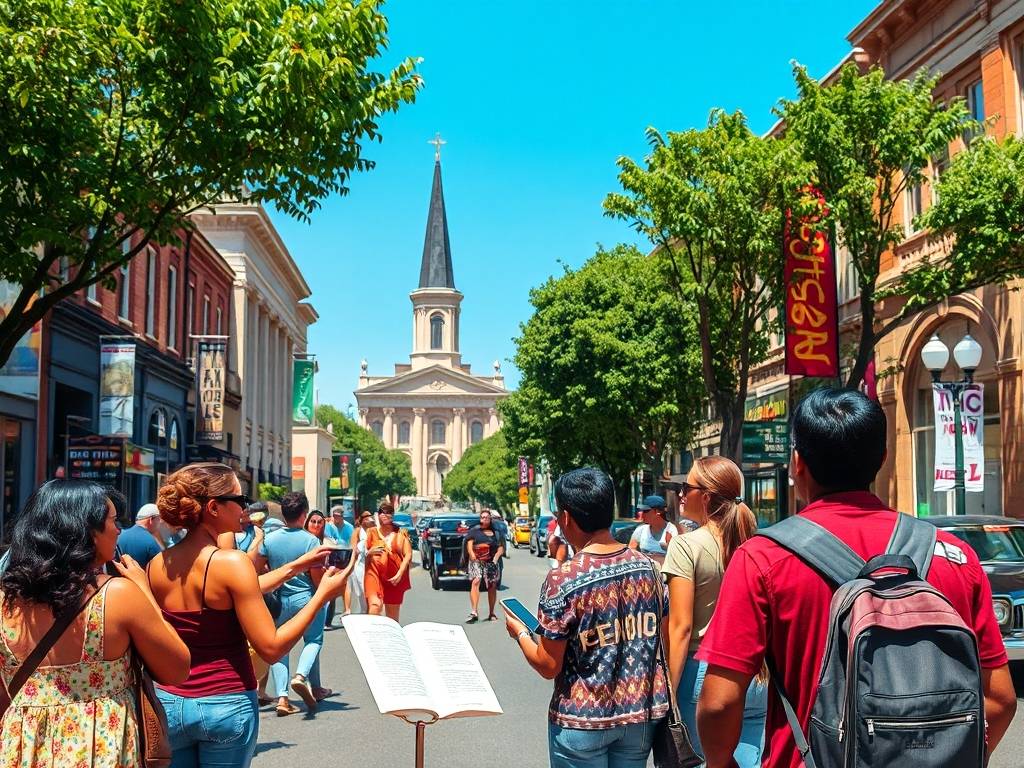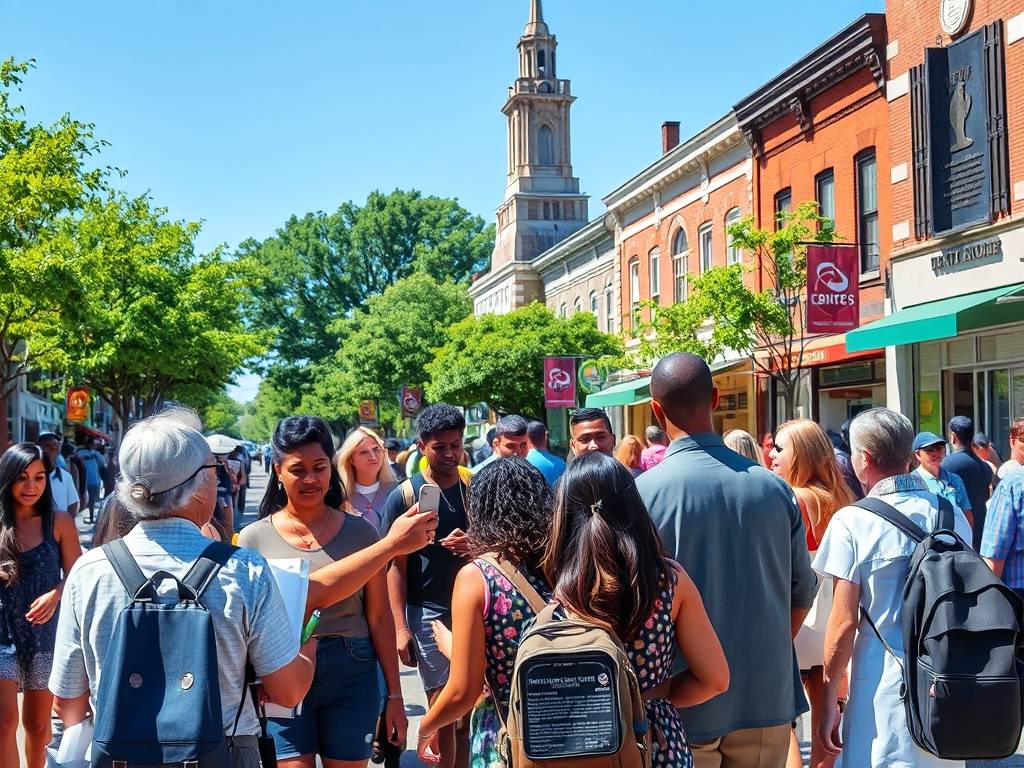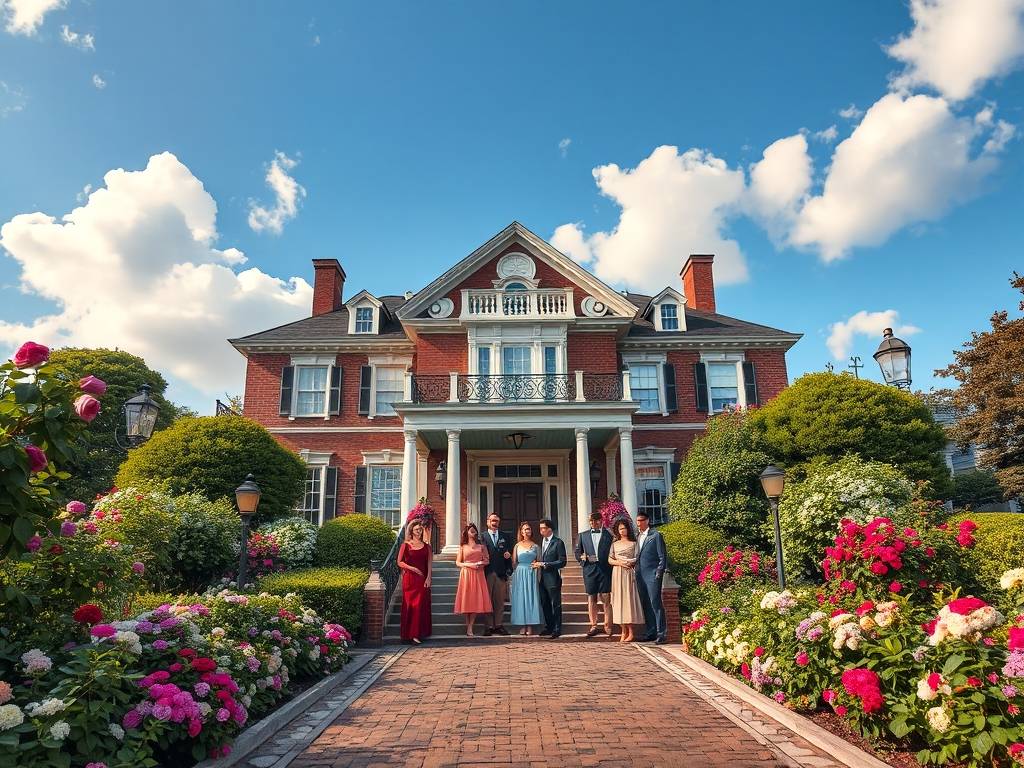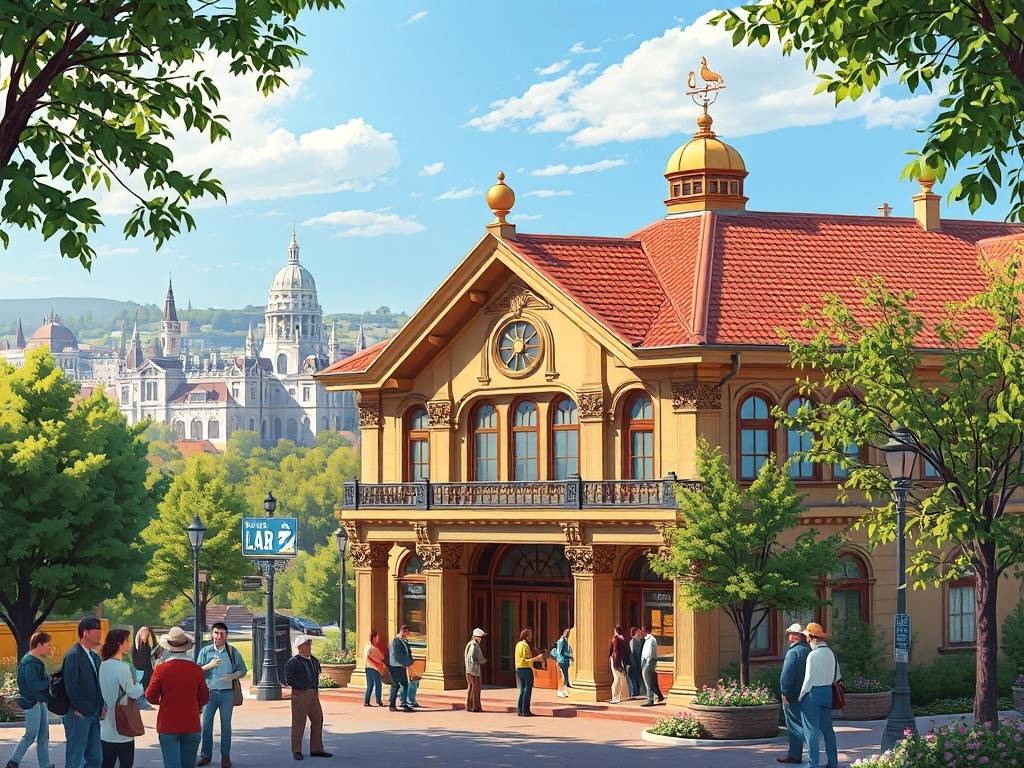USA Travel
US Travel: Civil Rights Movement Tours in Alabama’s Birmingham
Footsteps of Courage: A Journey Through Birmingham's Civil Rights Legacy
There's a certain weight to the air in Birmingham, Alabama. It’s not just the humid Southern breeze; it's the weight of history, a palpable sense of the profound struggles and extraordinary bravery that defined the American Civil Rights Movement. For any traveler seeking to understand the soul of the United States, a journey through Birmingham is not just a trip—it's a pilgrimage. This city, once known as "Bombingham" for the violence that erupted within it, has transformed into a powerful, living classroom. A Civil Rights Movement tour in Alabama's Birmingham offers an unparalleled, immersive experience, connecting you directly to the stories of courage that changed a nation.
Your journey almost inevitably begins at the Birmingham Civil Rights Institute (BCRI). More than a museum, it's a narrative journey. As you walk through its halls, you move chronologically from the stark realities of segregated life—viewing the chilling "Whites Only" and "Colored" signs—to the boiling point of the 1960s. The institute doesn’t just show you history; it makes you feel it. The exhibits are a masterful blend of archival footage, poignant photography, and personal artifacts. You'll stand before the actual door from the jail cell where Dr. Martin Luther King Jr. penned his legendary "Letter from a Birmingham Jail," a document that remains a cornerstone of moral and philosophical argument. A visit here is the essential foundation for any meaningful Civil Rights travel itinerary, providing the context that makes the surrounding historic district so powerful.

Directly across the street, the silence is deafening. This is the Kelly Ingram Park, the very ground where the movement unfolded in dramatic and often brutal fashion. Today, the park serves as a "Place of Revolution and Reconciliation." Its haunting sculptures guide you along a "Freedom Walk." You are met by confronting statues of police dogs snapping, symbolizing the violent response protestors faced. Another sculpture depicts a minister leading a prayer, surrounded by children behind bars, a direct reference to the 1963 Children's Crusade in Birmingham. This was a pivotal moment. When adults feared losing their jobs, thousands of children—some as young as six—marched for freedom, facing fire hoses and police batons with astonishing courage. Standing in this park, you aren't just reading about these events; you are standing on the hallowed ground where they happened, a profound experience that is central to any Alabama Civil Rights tour.

Adjacent to the park stands the 16th Street Baptist Church, a beautiful and solemn landmark whose story is both tragic and transformative. On September 15, 1963, a bomb planted by white supremacists exploded, killing four young girls—Addie Mae Collins, Cynthia Wesley, Carole Robertson, and Denise McNair—as they prepared for Sunday service. This act of terror shocked the world and became a catalyst for the passage of the Civil Rights Act of 1964. Stepping inside the church is a humbling experience. The quiet reverence, the memorial to the four girls, and the stunning stained-glass window, a gift from the people of Wales depicting a black crucified Christ, create a space for deep reflection. It is a stark reminder that the fight for equality was paid for with the most innocent of lives, making a visit here a cornerstone of any Birmingham AL historical travel plan.
To truly grasp the economic dimension of the movement, a walk through the Fourth Avenue Business District is a must. This area was the thriving heart of Black commerce and culture during segregation. It was a self-sustaining world with its own businesses, theaters, banks, and nightclubs. Legends like Duke Ellington and Ella Fitzgerald performed here. Understanding this district is crucial because it was the economic strength of this community that helped fund and sustain the movement. The Alabama Jazz Hall of Fame, located here, celebrates this rich cultural heritage. Exploring this area adds a vital layer to your understanding, showing that in the face of oppression, a vibrant, resilient, and proud community not only survived but thrived.
For those looking to go deeper, consider a guided tour. Knowledgeable local guides, some of whom lived through these events or are descendants of activists, provide personal anecdotes and insights you won't find in any guidebook. They can point out lesser-known sites and share stories that personalize the history, making your Civil Rights Movement tour in Alabama's Birmingham deeply personal and unforgettable. This is one of the best ways to ensure you are planning a Civil Rights tour in Birmingham that is both comprehensive and emotionally resonant.
Before you visit, a little preparation will enrich your experience. The Birmingham Civil Rights National Monument, designated in 2017, encompasses the BCRI, 16th Street Baptist Church, Kelly Ingram Park, and other sites, affirming their national significance. Check the opening hours for the BCRI and the church, as they can vary and often require advance booking for tours. Wear comfortable shoes, as the historic district is best explored on foot. Most importantly, come with an open heart and mind. Allow yourself time to process the emotions this journey will evoke. The city of Birmingham does not shy away from its painful past; instead, it has embraced its role as a custodian of this crucial history, ensuring that the lessons learned here are never forgotten.
A trip to Birmingham is more than sightseeing; it's an engagement with the ongoing American story. It’s about walking in the footsteps of Civil Rights heroes in Birmingham, understanding the price of freedom, and drawing inspiration from the incredible power of nonviolent protest. It answers the question of why we must remember, and more importantly, why we must continue the work. You will leave not just with photographs, but with a renewed sense of purpose, carrying the echoes of the past to inform a more just future. This is the profound gift of a Civil Rights Movement tour in Alabama's Birmingham—it doesn't just teach you history; it changes you.
相关文章
- US Travel: Revolutionary War Museums in Massachusetts’s Lexington
- US Travel: Historic Plantation Tours in Louisiana’s New Orleans Vicinity
- US Travel: Jazz History Walks in Louisiana’s New Orleans French Quarter
- US Travel: Industrial Revolution Sites in Pennsylvania’s Pittsburgh
- US Travel: Gold Rush Museums in California’s Sacramento
- US Travel: Victorian Mansion Tours in Rhode Island’s Newport
- US Travel: Mission Tours in California’s San Juan Capistrano
- US Travel: Pirate History Tours in North Carolina’s Outer Banks
- US Travel: Colonial Era Tavern Visits in Pennsylvania’s Philadelphia
- US Travel: Native American Powwow Experiences in Oklahoma
发表评论
评论列表
- 这篇文章还没有收到评论,赶紧来抢沙发吧~


